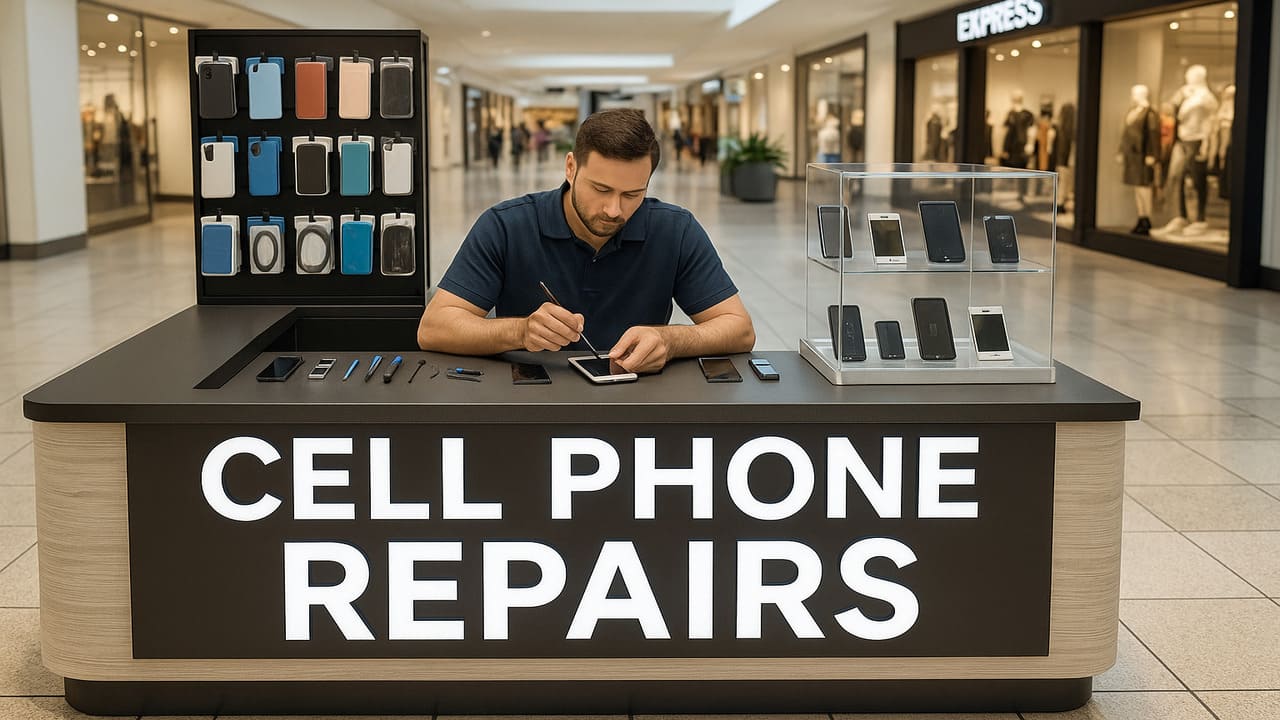
The Berkshire Mall – Gadgets are used daily for work, communication, entertainment, and even financial transactions. Because of this dependence, when a phone breaks whether from a cracked screen, water damage, or malfunctioning parts people need fast and reliable repair services. This constant demand is what makes cell phone repairs a thriving business model, particularly in locations with high foot traffic like shopping malls.
Unlike some industries that fluctuate with trends, the need for phone repairs remains steady. Smartphones are expensive to replace, and many people prefer repairing a damaged device over purchasing a new one. As a result, a repair kiosk can serve hundreds of potential customers each month. For entrepreneurs, this presents a reliable and lucrative opportunity, especially if the service is paired with professional customer care and competitive pricing.
Setting up a cell phone repair business in a shopping mall offers unique advantages. First, malls naturally attract a steady stream of visitors daily, many of whom carry their phones and other electronics. When people encounter sudden device issues while shopping, they are more likely to drop by a kiosk for quick service. The convenience factor works strongly in favor of repair businesses located in malls compared to standalone shops.
Second, shopping malls provide visibility. A kiosk located in a busy corridor or near food courts and entertainment areas will be seen by thousands of potential customers each week. This visibility not only helps in building a customer base but also in creating brand recognition. Moreover, malls often attract a diverse demographic, from teenagers to working professionals, all of whom rely heavily on their devices and may need repairs at some point.
Also Read : Event Planning Guide: How to Master Venues, Vendors, and Big Events
A successful repair kiosk should provide a wide range of services to meet the varied needs of customers. Some of the most common offerings include:
By offering these services, kiosks can build trust and retain customers who know they can rely on quick, efficient solutions for any problem.
Trust is central to the success of a cell phone repair business. Customers hand over devices that store sensitive information, from personal photos to financial apps. As such, professionalism, transparency, and security practices must be prioritized. Clear communication about repair timelines, pricing, and guarantees builds confidence and sets a kiosk apart from less reliable competitors.
Competitive advantage also comes from speed. In a shopping mall environment, people may want their phones fixed while they shop, eat, or run errands. Offering same-day or even one-hour repair services is a huge draw. Combining this with warranties on parts and labor can further strengthen customer loyalty. Additionally, integrating accessory sales such as phone cases, chargers, and screen protectors—provides extra revenue streams.
Read More : Wave of Anti-Immigration: Governments React Protests Across Nations
Looking ahead, the potential of cell phone repair kiosks extends beyond just smartphones. As technology advances, people are increasingly using tablets, smartwatches, wireless earbuds, and even laptops in their daily lives. This opens opportunities for kiosks to diversify their services and cater to a broader range of devices. Expanding expertise beyond phones will keep kiosks relevant and profitable in an ever-evolving tech landscape.
Moreover, malls are becoming more than just shopping destinations—they are evolving into lifestyle hubs where people spend time with family and friends. Having service-based businesses like cell phone repairs in these environments ensures customers can solve practical problems while enjoying their leisure time. This integration of convenience and necessity ensures that repair kiosks will remain a valuable part of mall ecosystems for years to come.
This Article About Cell Phone Repairs Written by: Lukman Azhari | Editor: Micheal Halim
Information Source: uniquekiosk.com